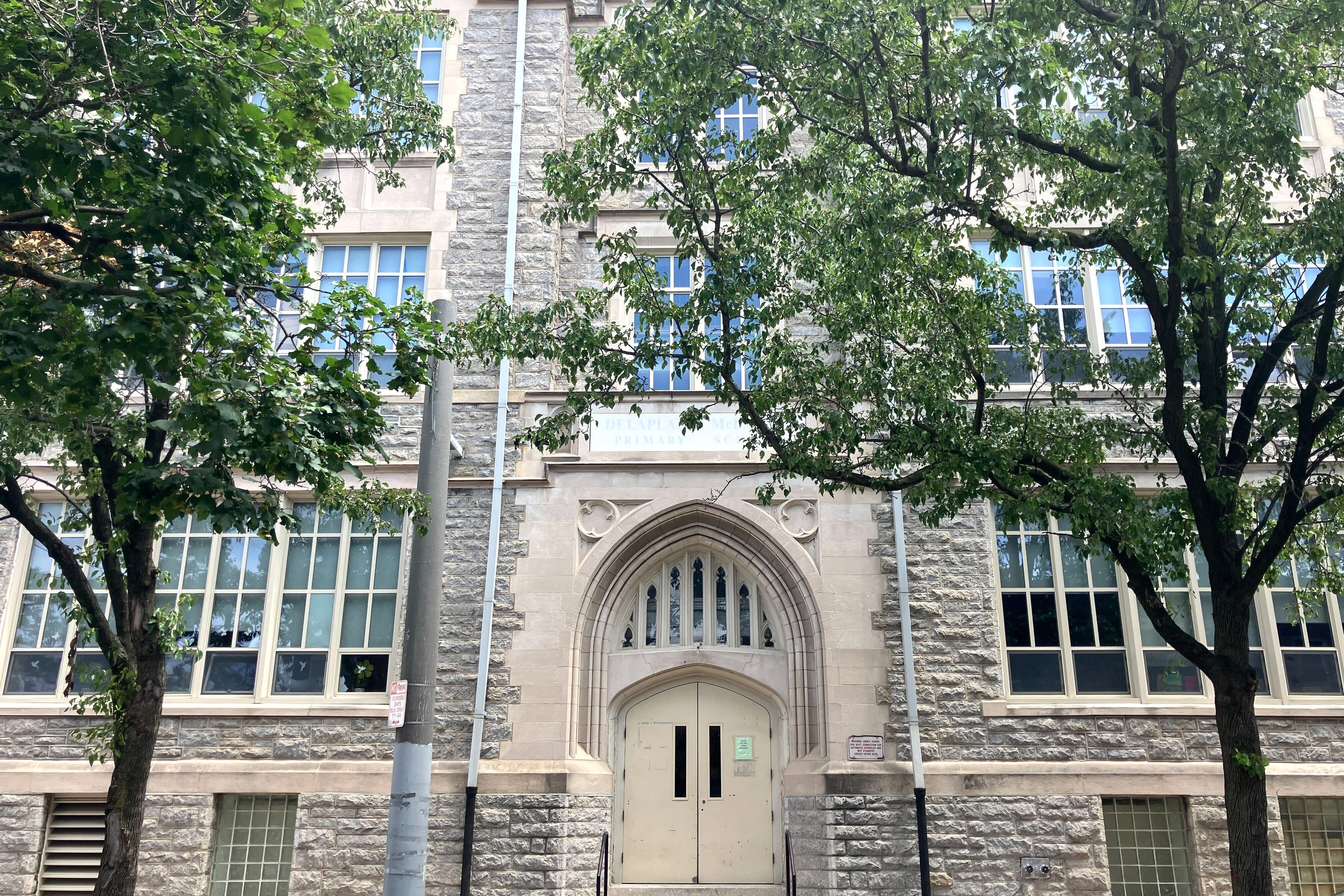Sign up for Chalkbeat Philadelphia’s free newsletter to keep up with news on the city’s public school system.
The Universal Vare Promise Neighborhood Partnership Charter School, which enrolled more than 120 students in grades 5-8 this year, will not pursue renewing its charter after next school year, effectively ending its operations.
The announcement marks the third school that the Universal Charter Schools network plans to cease operating, leaving the campus’s future uncertain. It’s unclear whether the district will step in and take over the school — as it did with one previous Universal charter — or if it will close entirely after the 2025-26 school year.
School board and district officials did not respond to questions about whether the district plans to take over the school after the charter ends.
The school’s CEO, Penny Nixon, said in a statement Wednesday that the decision was the result of declining enrollment. The school is authorized to enroll 425 students but has enrolled fewer than half that number for the past three years.
“The challenges we face at Universal Vare reflect broader citywide experiences,” said Nixon. “Gentrification and declining birth rates have significantly impacted school enrollment.”
The announcement comes as the school district pursues its own facilities planning process that’s partially meant to address declining enrollment in several district-operated schools. School board officials said the process will likely result in school closures, as well as co-locations and the repurposing of some school buildings.
The district’s process to determine whether and how to close schools has been nearly a year in the making and includes regular community engagement sessions. District officials have stressed the process will be transparent and informed by community feedback.
Like other charter schools that have recently closed, Universal Vare’s decision to stop operating the school came unexpectedly.
Soon after the announcement, the board of education issued its own statement supporting the decision.
“While change can be challenging, the Board respects and supports the school’s decision, which we believe is grounded in what is best for children,” said school board President Reginald Streater. “We commend the school leadership for taking a proactive and student-first approach, even when the path forward is hard.”
Universal Vare’s history riddled with challenges
Universal Vare launched in 2011 as part of the city’s Renaissance Initiative, which gave 22 district-operated schools over to charter networks.
Renaissance schools were meant to “transform historically failing schools,” then-Superintendent Arlene Ackerman said at the time. But more than a decade later, many of its promises haven’t materialized.
The school board has documented ongoing problems at Universal Vare for years.
In 2016, the Charter Schools Office recommended the school for non-renewal because it had failed to meet certain standards, including academic performance and financial sustainability. Under Universal’s management, the school’s math proficiency scores severely declined, and its reading proficiency scores only slightly increased. The school also struggled with persistent low attendance rates and insufficient funding.
The non-renewal would have meant the school would be forced to close. But it campaigned to continue operating, and in 2018 the School Reform Commission, which oversaw the district at the time, voted to allow it to renew its charter with certain conditions.
At its next renewal in 2020, Universal Vare’s test scores showed that students were doing worse than the district average across all subjects. But its scores reflected academic growth across the board.
Financially, the school still was struggling, with less than a month of cash on hand.
In 2023, the school suddenly shut its building’s doors partway through the school year after asbestos was discovered inside. Students ended the year learning virtually. The following school year, the school relocated to a nearby building.
Academically, the school continued to have problems. Last year, only 2% of students received proficient scores on the state math test. Though students did better on language arts and science tests, they still scored below the district average.
Peng Chao, the chief of the city’s Charter Schools Office, said the office supports the school’s decision not to renew its charter.
“This decision reflects a deep commitment to ensuring that all students have access to robust, high-quality educational experiences,” said Chao. “We appreciate the school’s thoughtful approach and continued focus on doing what is best for students.”
Rebecca Redelmeier is a reporter at Chalkbeat Philadelphia. She writes about public schools, early childhood education, and issues that impact students, families, and educators across Philadelphia. Contact Rebecca at rredelmeier@chalkbeat.org.






